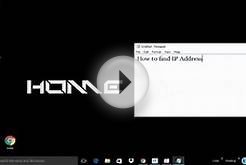You're not a New York Times bestselling author. You don't have a publicist. And your Amazon sales numbers are awful. Should you quit writing books?
Absolutely not.
No matter what kind of book you've written (or plan to write) there are many ways to reach your audience. Each of the DIY tools listed here are low or no-cost, and each of them works in its own way. One or more may be perfect for you.
Fifteen ideas might seem overwhelming, but remember that you only need to do one thing at a time. As one clicks and then another, you'll soon be reaching your audience.
The bottom line is to practice selling your books one by one. Author and publisher Michael Wiese has been writing and marketing books successfully for over three decades. He tells all his forty-plus authors "Sell one book at a time."
Instead of trying to sell your book to faceless thousands, find one person who needs and wants your book. Offer your book to that person. Repeat.
Slower than you want, but faster than you think, you may become a best-selling author.
1. Start Early
The most powerful and essential steps you can take toward promoting your book begin long before the actual writing of the book. Three years before the book is published-if you can-start building a network of supporters and reviewers. Keep track of everyone you meet as you research and write the book. Pay special attention to, and make notes about, those who demonstrate a genuine enthusiasm for you and your project.
As the project evolves, keep in touch with these people. You might send them an occasional email, or keep in touch via a social networking site like LinkedIn or FaceBook.
For significant milestones-the signing of your book contract, the completion of the manuscript, the arrival of the galley proofs, and the arrival of the finished books-you might bring key people together for a house party. At the house party, you could read short excerpts from your book and answer questions about the project.
2. Contribute to Web Forums
Every field has at least one or two forums that people interested in your subject know and read. Find and join these forums.
Contribute to them freely. Give advice and reach out. Offer to help others. Put a link to your blog or website in your signature line. When you have a book contract and/or a book title, add the title to your signature line.
3. Start a Blog
Early in the process of researching and thinking about your book, start a blog. Add 120-130 words each day of helpful, inspirational information on issues in your field, which are related to the subjects in your book. Aim to create a genuinely useful body of knowledge over the following 12 months.
4. Write a Remarkable Book
Set out to write a remarkable book. If your book is not remarkable, keep working on it until it is. Give the manuscript to ten friends and ask for honest feedback. Find a brilliant editor (you can find such an editor at EFA) and pay him or her to edit your manuscript. Revise. Repeat.
Don't stop until your reviewers start saying things like: "I loved it! This book is amazing!"
A remarkable book will generate word-of-mouth publicity. One person will read it, and recommend it to his or her friends. They will recommend it to their friends. This is the best publicity you can get.
5. Cultivate a Positive Attitude about Book Promotion
Think of book promotion as storytelling. The story you are telling is why you wrote your book, how it can help others, and how the world will benefit from your book.
If you can develop a positive attitude about book promotion, people will pick up on it, and tune in immediately. Some writers resent the chore of marketing. Their attitude seems to be, "I'm a writer. Marketing is the publisher's job. Promoting my own book shouldn't be my responsibility."











